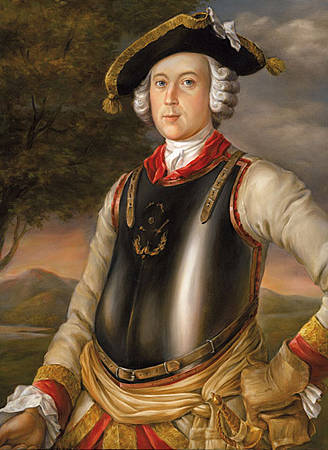Barons Are Not What They Used to Be

Barons are not very fashionable these days, except when someone with this title has a mention in the press for good or bad reasons. (Their title is still used to remind us of the “robber barons” of the 19th century in American economic history.) However, they are alive and well in the Armenian language, even if on a lower ranking.
The origin of the word baron (պարոն) is common for both English and Armenian: Old French baron, which comes from Latin. It entered the Armenian language in the early period of the state of Cilicia (11th-12th century), with the meaning of “ruler, prince.” The form պարոն seems to show that the transcription of the sound b as բ in Classical Armenian was not working properly any more.
It appears that the word followed the French model, where monsieur first meant “ruler, prince,” and became the equivalent of “mister” or “sir” in modern times. We say:
Baron Kevork Boghosian (Պարոն Գէորգ Պօղոսեան, “Mister Kevork Boghosian”)
Harkeli baron (Յարգելի պարոն, “Dear Sir”)
The word is also used to say “gentleman,” as in:
Barone ov e? (Պարոնը ո՞վ է, “Who is the gentleman?”)
However, when you need to say “Mr. and Mrs.,” you cannot use baron. You have to say Der yev Diguin (Տէր եւ Տիկին). As we see, the well-known word Der (“Lord”) has some use among ordinary people, besides being the title utilized to address God, high-ranking and low-ranking ecclesiastics, and, in other times, noblemen of all sorts.
In the nineteenth century, diar (տիար, plural deark/տեարք) appeared in Western Armenian as a purely native equivalent of baron. Perhaps its creators had either French monsieur or English milord somewhere in their mind. It was born from the combination of the words di (տի “great”) and ayr (այր “male”), and followed the model of digin (տիկին, “Mrs.,” “Madam,” “lady”). This same combination had also originated the word der. The genitive singular of der in Classical Armenian is dearn (տեառն “of the Lord”); Dearnentarach (Տեառնընդառաջ) literally means “Meeting of the Lord.”
Diar may be considered a fancier word than baron and for this reason it seems to confer an aura of elegance. Sometimes it is used to address personalities. In any given case, you can say Harkeli diar nakhakah (Յարգելի տիար նախագահ, “Dear Mr. President”) or simply Diar Boghos Kevorkian (Տիար Պօղոս Գէորգեան, “Mr. Boghos Kevorkian”). However, you cannot use diar to say “gentleman” or “Mr. and Mrs.”
As a side note, the use of baron in Armenia was restricted to name “capitalists” during Soviet times; Soviet citizens had to address each other as enger (ընկեր “comrade”). After the collapse of the Soviet Union, baron was restored and, with it, the word diar also entered Eastern Armenian.
